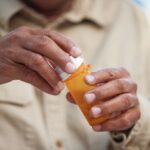
What Is an Intervention for Addiction?
In addiction recovery, an intervention is a carefully planned and organized process. It is an attempt by family and friends to confront their loved one about their addiction. The intervention takes place at a pre-arranged location, date, and time. Family and friends are encouraged to tell their loved ones their concerns and feelings regarding their substance addiction. At the end, the individual is presented with options for treatment and given boundaries that will protect the family members and encourage the individual to seek treatment. (see related article: 7 Signs It’s Time for an Intervention)
For best results, an intervention should be guided by a professionally trained interventionist, a medical professional, or a licensed drug and alcohol counselor.
Who Should You Include on the Intervention for Addiction Team?
There are typically four to six people on the intervention team in addition to the professional. The team should be composed of people your loved one respects, likes, and depends on. Only people who are important to your loved one should be on the intervention team. Team members may include a best friend, an adult relative, or someone from their religious faith. Anyone who is likely to sabotage the intervention, is in active addiction, or is someone your loved one dislikes should not be included.
Five Tips for a Successful Intervention
Professionals recommend the following criteria for a successful intervention.
- Plan Ahead: Never wait until the last minute when planning an intervention. You have a much better chance of a successful outcome when you are prepared and organized ahead of time. It is critical that everyone on the intervention team educates themselves about addiction and how it affects their loved one. Each team member needs to be prepared with what they will say during the intervention.
- Choose the Right Time: Choose a day of the week and time of day when the individual is less likely to be drunk or high. Your loved one should not be aware of the reason for the get-together until they arrive.
- Rehearse: Talk to all the team members beforehand and make certain they all have the same information. If possible, everyone should meet before the intervention and rehearse what they will say. They should let the person know how their addiction affects them and have strategies in place for how to handle possible responses.
- Expect Anger: Your loved one may react with anger when confronted with their addiction. They may feel threatened and refuse to get help. By being prepared for this reaction, you know how to act. Team members must stay rational and calm. Never reply with anger.
- Follow Through: Insist that your loved one make a decision at the end of the intervention. They must either agree to get treatment or accept the consequences of refusing treatment. Consequences might involve no longer receiving financial help from the family. Or, you might set a rule that your loved one cannot use drugs or alcohol at home or be in the home when they are drunk or high. Be prepared to follow through–either by helping your loved one get into treatment right away or by enforcing the boundaries.
(See related article: 4 Reasons to Consider an Intervention During the Holidays)
Goals of an Intervention
An intervention has three simple goals:
- To make the person aware of their substance use disorder and the effect it has on family and friends.
- To motivate the person with the drug or alcohol addiction to recognize they have a problem and agree they need help.
- To have an action plan that creates a strategy for recovery with clearly stated guidelines and step-by-step goals.
Help Is Available
Addiction is a chronic brain disease that can affect anyone. If you or a loved one is struggling with addiction to drugs or alcohol, you are not alone. Help is available. At English Mountain Recovery Center, located in the scenic Smoky Mountains of East Tennessee, all aspects of recovery are addressed through therapy, educational groups, exercise, advanced holistic therapies, and nutrition. Call and speak with a caring professional at English Mountain Recovery. Take the first step on the road to recovery.
 Considering a TN addiction treatment program? To learn more about programs offered at English Mountain Recovery, call and speak with someone today at (877) 615-8569. We are ready to help you or your loved one recover.
Considering a TN addiction treatment program? To learn more about programs offered at English Mountain Recovery, call and speak with someone today at (877) 615-8569. We are ready to help you or your loved one recover.About the Author: 
Terry Hurley is a retired educational professional and freelance writer with more than fifty years of experience. A former reading specialist and learning center director, Terry loved her years working with children in the educational field. She has written extensively for print and online publications specializing in education and health issues. For the last six years, her writing focus has been on addiction and mental health issues.




